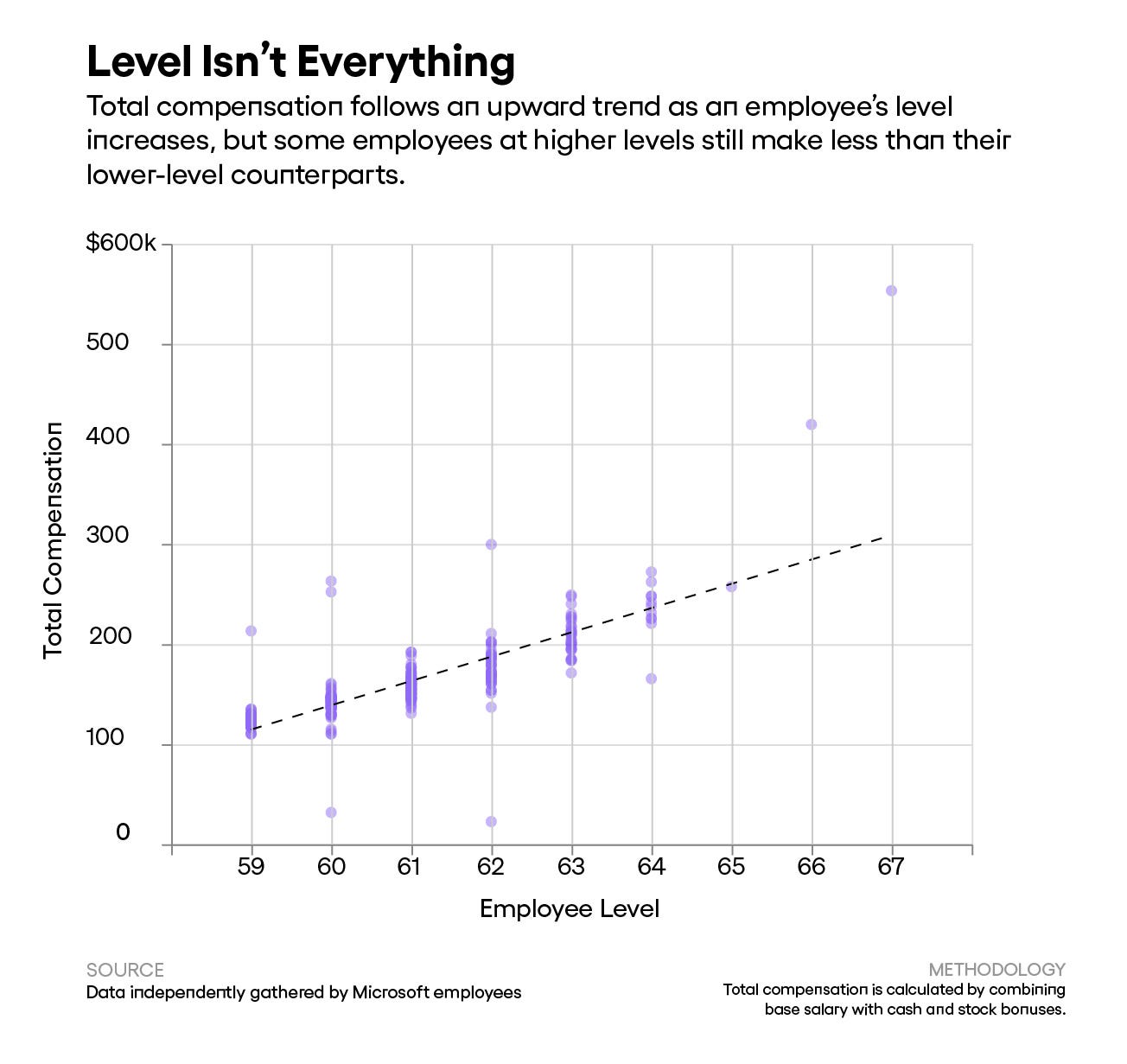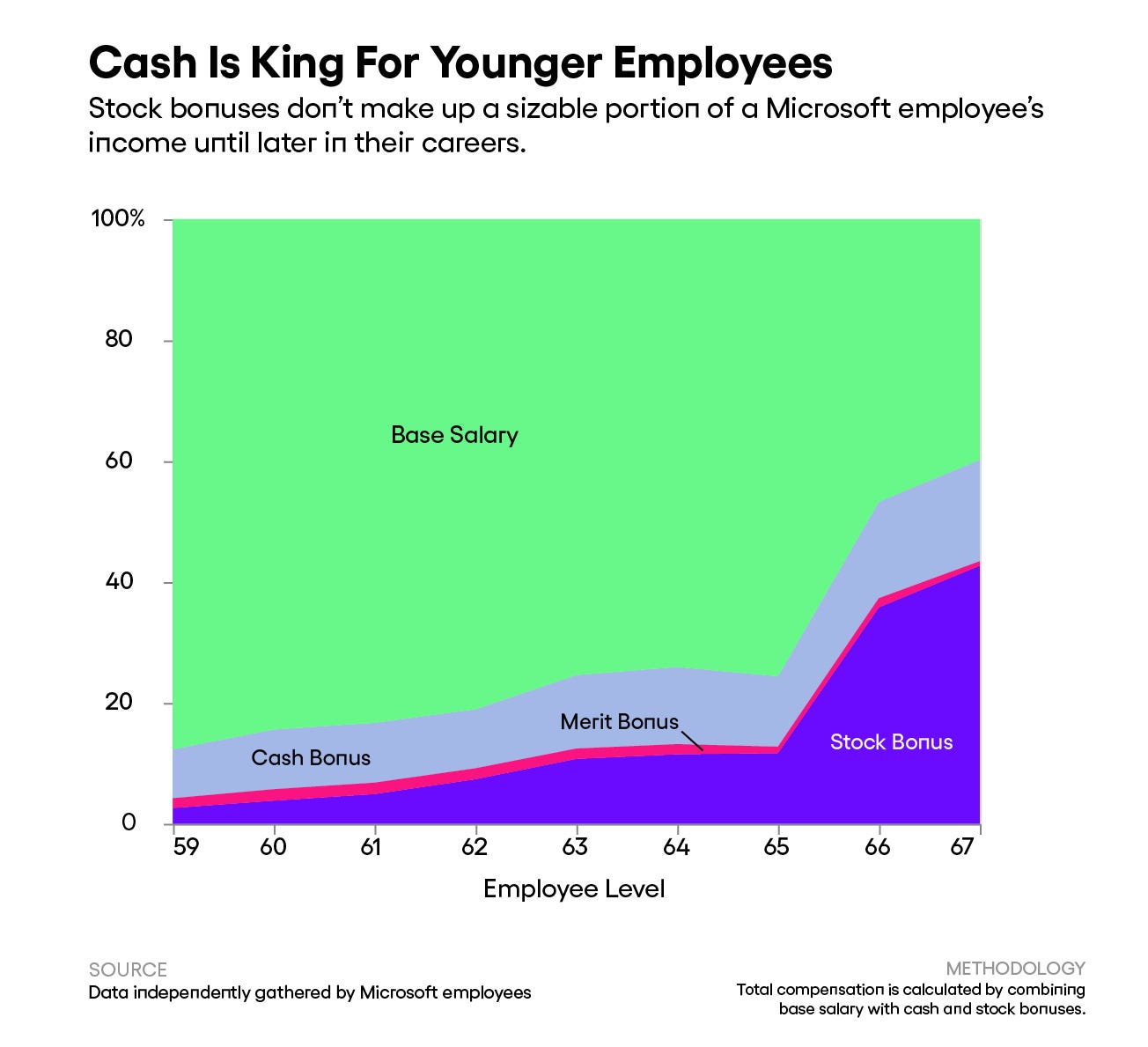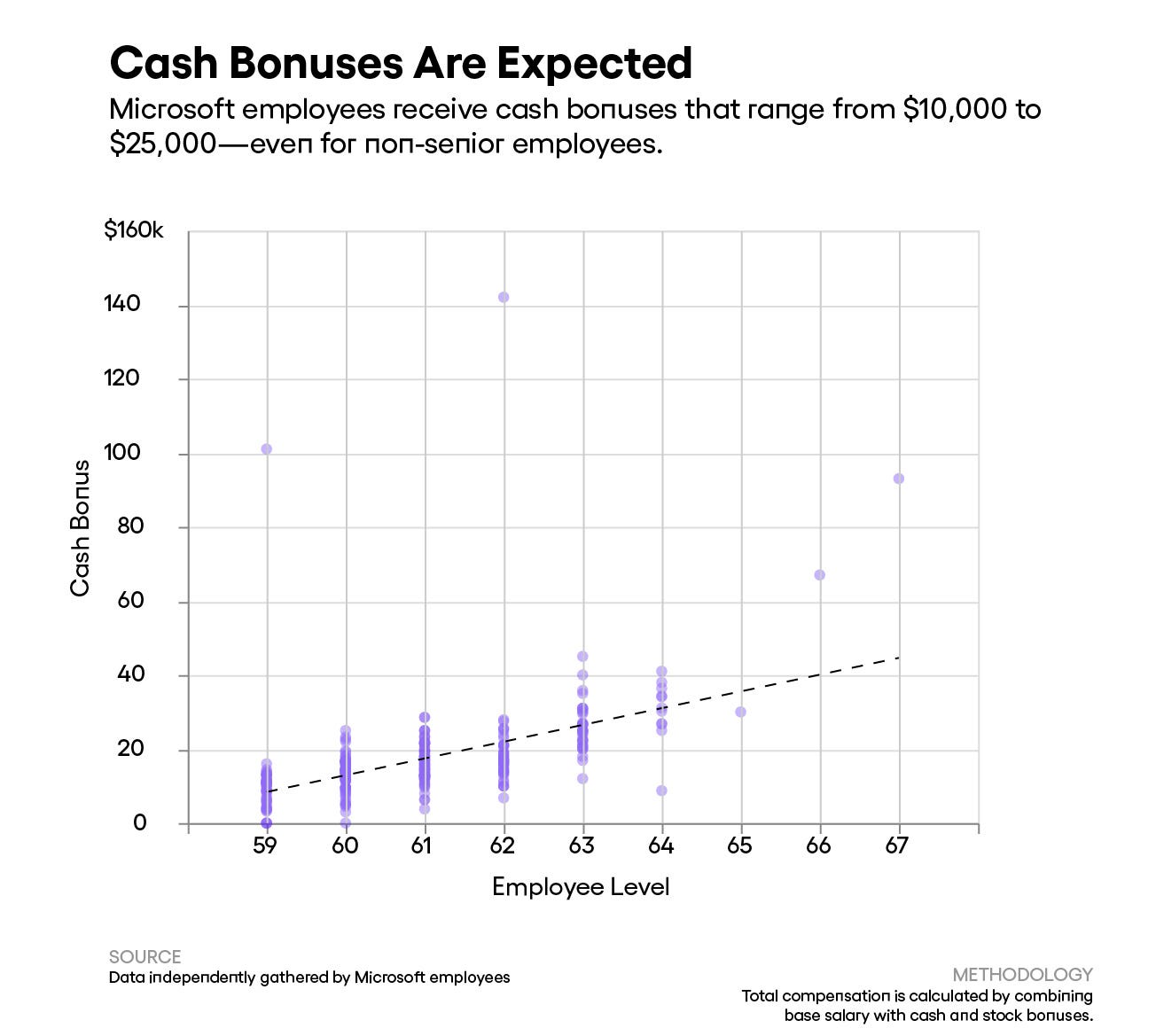
O
ver the course of August 2020, more than 300 Microsoft employees shared their salaries, bonuses, and stock awards in a Google spreadsheet to continue their push for fairer compensation.
“You are legally protected to share this info, and you should share it so your coworkers can determine if they’re being underpaid; however, you should still exercise caution,” the Google Form to submit information reads.
Sharing compensation data has become an annual tradition at Microsoft during this time of year when full-time employees are notified of any raises or bonuses. Last year, more than 400 employees similarly shared their salaries, OneZero reported. The employees who respond to each year’s survey are mainly based in Redmond, Microsoft’s Washington headquarters. By the last day of August 2020, 310 employees had added their data to the spreadsheet. Microsoft employs more than 150,000 employees around the world.

Employees shared their previous base salary, any cash bonuses, other bonuses paid out in stock, and merit-based increases in salary. This year’s spreadsheet also included two new questions: one asking whether the employee was a person of color, and another asking whether the employee felt marginalized or at risk of being marginalized due to their gender or gender identity. Microsoft’s latest diversity report showed the company was mainly white and male, especially at the highest levels.
At Microsoft, like most tech companies, seniority and compensation is based on a person’s level. At Microsoft, the levels start at 59 and go beyond 80. Microsoft’s senior positions start at level 63, according to the crowdsourced tech compensation website Levels.fyi.
The average entry-level engineer or program manager will have a total compensation of $125,665.
The compensation spreadsheet shared with OneZero was obtained from the Young Microsoft FTE group on Facebook, which means the data is skewed toward younger employees. More than 250 of the 310 respondents in this year’s compensation sharing spreadsheet were levels 59 to 62.
Based on this year’s respondents, the average entry-level engineer or program manager will have total compensation of $125,665. A vast majority (87%) of that will come from an average base salary of $111,096, with an average cash award of $10,701 and a stock award of $3,867.
By level 62, stock and cash bonuses start to become a more significant part of annual compensation. That levels’ total compensation sits at an average of $174,962, with a $20,028 cash award and $13,713 stock award on top of a $141,220 base salary.


At level 64, which includes only 11 of the respondents, salary counted for only 72% of an average total compensation of $234,249.
A majority — 194 out of 307 — total respondents said they were people of color. Also, 69 respondents reported feeling marginalized or at risk of being marginalized due to their gender or gender identity. In total, 22% of respondents said that their gender or gender identity had or might hinder them at work.
Microsoft dealt with an internal reckoning over harassment and discrimination last year after an internal email chain, in which dozens of women shared their stories of verbal abuse and being sidelined due to their gender, made its way around the company. The company made sweeping changes, including hiring a new team to help employees companywide navigate HR investigations, a new training regimen for managers, and an internal review of pending cases that were overlooked.
While the sample size is small, this new data shows that some Microsoft employees still feel marginalized within Microsoft’s culture due to their gender identity.
While a few hundred employees contributed to this internal sharing of salary information, there are other pools of salary data available online. The largest is Levels.fyi, which has nearly 4,000 entries from Microsoft employees, which date back to 2017.
Other tech companies have salary sharing drives as well. Former Google employee Erica Joy started an infamous salary sharing spreadsheet at the company, which she chronicled in a Twitter thread in 2015.



